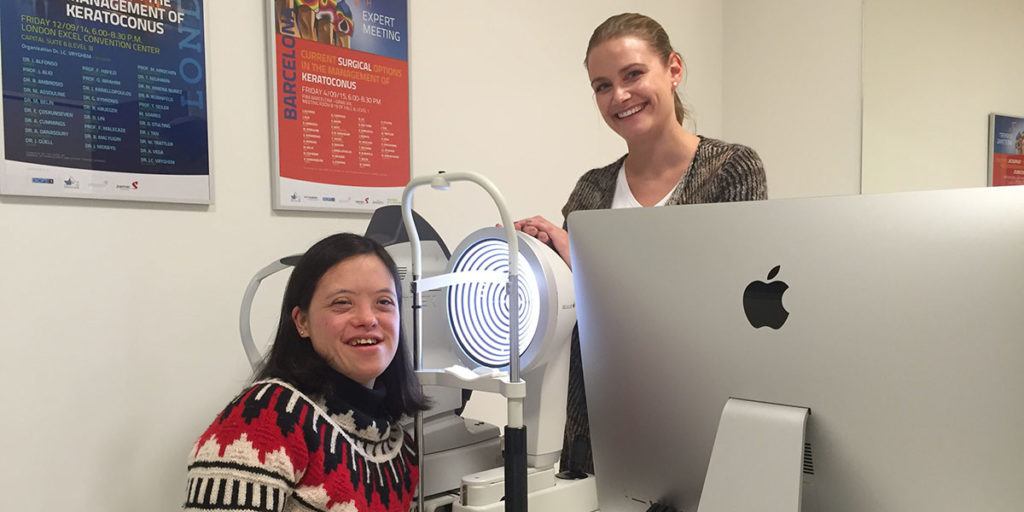November 10, 2017: Keratoconus affects about 1 in 2,000 people in the general population, but 1 in 7 Down syndrome individuals are affected with this disease that can lead to severe visual impairment.
Keratoconus is an eye disorder, which leads to progressive thinning of the cornea, especially in children. While the cause is unknown, contributing factors are a combination of genetic, hormonal, and environmental factors like habitual eye rubbing and/or chronic allergies.
In order to raise awareness about keratoconus, especially in the Down Syndrome pediatric population, the ELZA Institute in Dietikon will inaugurate the “Light for Sight 21 Eye Health Consultation” on World Keratoconus Day (November 10, 2017). This year-round consultation will be dedicated to detecting, diagnosing and treating the most common eye diseases and conditions that Down syndrome individuals face, including keratoconus.
75% of children and adolescents with Down syndrome experience eye related problems like cataract and keratoconus, so early detection to initiate treatment is essential. And good vision is essential for proper early childhood cognitive development, especially in children with learning disabilities; so, any visual impairment would indirectly affect the child’s ability to reach its full potential for the rest of its life.
Before 2005, the only means to treat keratoconus was with a corneal transplant. Now a medical procedure called corneal cross-linking (CXL) stops the progression of this disease. CXL now is a global standard of care and was developed in Zurich, Switzerland. CXL has been shown to significantly decrease the need for corneal transplants.
Light for Sight Ambassador, Prof. Farhad Hafezi at the ELZA Institute (Dietikon), is an internationally recognized keratoconus expert and a leading pioneer in the field of corneal cross-linking (CXL).

